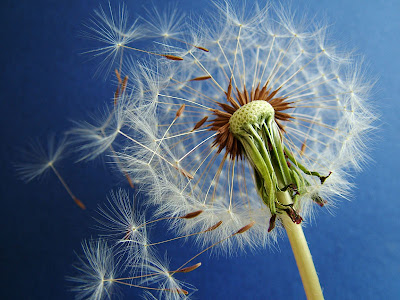The orbiter Mars Global Surveyor arrived at Mars in 1997. It discovered that Mars once had a strong magnetic field. The orbiter also accurately mapped the topography of Mars, revealing, among other things, that the distance from the lowest spot on the surface of the planet to the highest exceeds 18 miles [29 km], compared with just over 12 miles [19 km] for the earth.
Friday, October 29, 2010
Saturday, October 23, 2010
Will Science Cure the World?
WILL modern science cure the world? In view of the many accomplishments in health care, some feel that this is not a far-fetched notion.
Governments and private benefactors are now working together with the United Nations in an unprecedented campaign against disease. One concerted effort focuses on the immunization of children in developing countries. According to the United Nations Children’s Fund, if countries achieve their goals, “by 2015, more than 70 million children who live in the world’s poorest countries will receive each year life-saving vaccines against the following diseases: tuberculosis, diphtheria, tetanus, pertussis, measles, rubella, yellow fever, haemophilus influenzae type B, hepatitis B, polio, rotavirus, pneumococcus, meningococcus, and Japanese encephalitis.” Measures are also being taken to provide basic health necessities, such as adequate access to clean water, better nutrition, and hygiene education.
Governments and private benefactors are now working together with the United Nations in an unprecedented campaign against disease. One concerted effort focuses on the immunization of children in developing countries. According to the United Nations Children’s Fund, if countries achieve their goals, “by 2015, more than 70 million children who live in the world’s poorest countries will receive each year life-saving vaccines against the following diseases: tuberculosis, diphtheria, tetanus, pertussis, measles, rubella, yellow fever, haemophilus influenzae type B, hepatitis B, polio, rotavirus, pneumococcus, meningococcus, and Japanese encephalitis.” Measures are also being taken to provide basic health necessities, such as adequate access to clean water, better nutrition, and hygiene education.
Monday, October 18, 2010
Cheap Imports, Fewer Burglaries
“An influx of cheap electronic goods” might put British burglars out of their jobs, according to a Reuters news report from London, quoting criminology lecturer James Treadwell, of the University of Leicester, England. The low cost of new DVD players, for example, means that those goods have almost zero resale value. They are “simply not worth stealing,” says Treadwell.
Thursday, October 14, 2010
Improving Your Memory
Memory involves three stages: encoding, storage, and retrieval. Your brain encodes information when it perceives it and registers it. This information can then be stored for future retrieval. Memory failure occurs when any one of these three stages breaks down.
Monday, October 11, 2010
That Amazing Weed—The Dandelion
Dandelions “are reviled as Public Enemy No. One by golf course superintendents and fastidious lawn owners everywhere” and as “the weed that won’t go away,” states The News of Mexico City. Yet, the dandelion “is one of the world’s most healthful plants” and can contribute much to your health and diet. Rich in Vitamin A and potassium, the dandelion is more nutritious than broccoli or spinach.
All its parts are useful. The young leaves can be used as greens in salads or in almost any recipe calling for spinach; the dried, roasted roots, for a coffeelike beverage; and the blossoms, for wine. Historically dandelion has been used as a liver tonic and cleanser, as a blood purifier and builder, and as a mild diuretic. The dandelion is “one of the top six herbs in the Chinese medicine chest,” declares The News. And for people who have a lawn or access to a pasture, dandelions are free.
All its parts are useful. The young leaves can be used as greens in salads or in almost any recipe calling for spinach; the dried, roasted roots, for a coffeelike beverage; and the blossoms, for wine. Historically dandelion has been used as a liver tonic and cleanser, as a blood purifier and builder, and as a mild diuretic. The dandelion is “one of the top six herbs in the Chinese medicine chest,” declares The News. And for people who have a lawn or access to a pasture, dandelions are free.
Thursday, October 7, 2010
Stress—Its Causes and Effects
WHAT is stress? According to one expert, stress may be defined as “any physical, chemical, or emotional factor that causes bodily or mental tension.” Does this mean that stress is inherently harmful? No. As Dr. Melissa C. Stöppler observes, “a mild degree of stress and tension can sometimes be beneficial. Feeling mildly stressed when carrying out a project or assignment often compels us to do a good job and to work energetically.”
So when is stress a problem? Says Stöppler: “It is only when stress is overwhelming, or poorly managed, that its negative effects appear.” Consider some common sources of stress.
So when is stress a problem? Says Stöppler: “It is only when stress is overwhelming, or poorly managed, that its negative effects appear.” Consider some common sources of stress.
Monday, October 4, 2010
Narcolepsy—The Sleeping Illness
Narcolepsy is an illness that causes its victims to have frequent attacks of sleepiness. Explains sleep researcher Wilse B. Webb: “People with narcolepsy will, while performing normal day-to-day activities, suddenly and involuntarily lapse into sleep lasting from a very few minutes to episodes of up to 15 minutes.” The attacks can come virtually anytime—during a lecture, while carrying on conversation, or while driving an automobile. Other symptoms often include sudden muscle weakness, sleep paralysis, and frightening hallucinations.
Friday, October 1, 2010
A Penchant for Pizza
KING Ferdinand I (1751–1825) is said to have disguised himself as a commoner and, in clandestine fashion, visited a poor neighborhood in Naples. Why the secrecy? One story has it that he wanted to sink his teeth into a food that the queen had banned from the royal court—pizza.


 11:15 AM
11:15 AM
 Hmm
Hmm


















